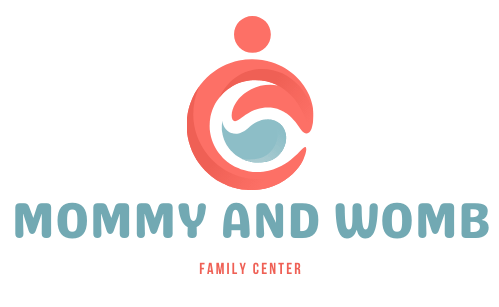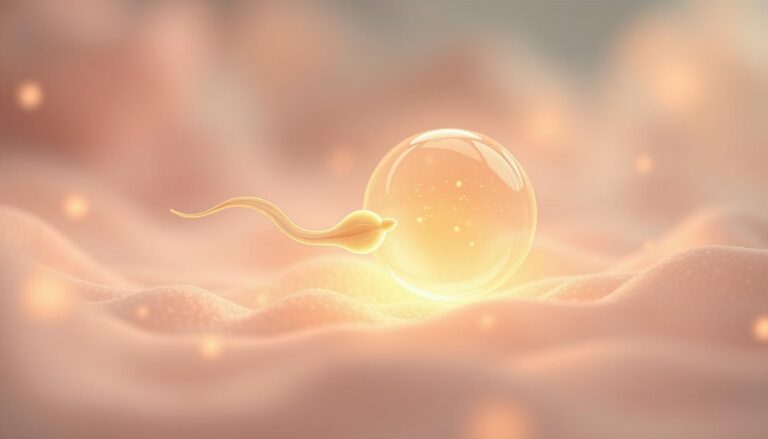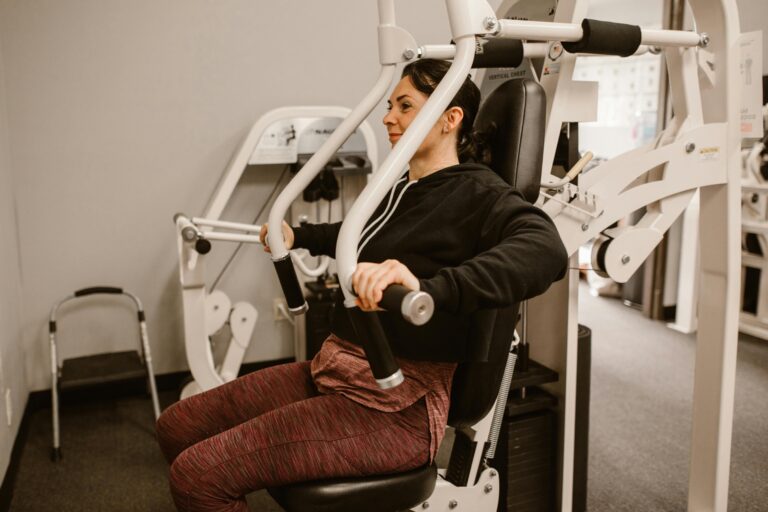Getting Pregnant at 40: Fast Tips for Success

The average age for first-time mothers in the U.S. has risen from 21 in the 1970s to 26 by 20201. More women are facing the challenges of conceiving after 40. Starting a family later in life is both exciting and daunting. It’s important to understand the obstacles you may face.
If you’re a career-focused woman or ready to expand your family, getting pregnant at 40 requires a proactive approach. With the right information and support, your dream of starting a family can come true. This guide will share the latest research, tips, and advice for a healthy pregnancy after 40.Fast Tips for Success
Table of Contents
Is It Possible to Get Pregnant Naturally at 40?
Getting pregnant naturally after 40 is possible but less likely. Women over 40 face higher risks of miscarriage and birth defects like Down syndrome2. Most over 40 get genetic tests during pregnancy to check for these issues2.
Chances of Conceiving After 40
People in their 40s have a 1 in 10 chance of getting pregnant each month. This is much lower than those in their 20s and 30s3. By 40, a healthy person has a 44% chance of getting pregnant in a year3. But, the chance of getting pregnant each month drops to 5% for a typical 40-year-old3.
Reasons for Declining Fertility with Age
The main reason for declining fertility is the decrease in egg quality and number3. By 40, a person may have only 2.5% of their original eggs, making conception harder3. Miscarriage risk at 40 is 27%, compared to 16% for those 30 or younger3. The risk of Down syndrome also increases, from 1 in 1,480 at 20 to 1 in 85 at 403.
Despite these challenges, some women can still conceive naturally in their 40s2. A healthy woman with regular ovulation and good eggs can get pregnant within a year2. The “gunshot method,” with intercourse every other day during ovulation, can also help2. However, some couples may need six months of trying before seeking a reproductive specialist2.
“The gunshot method,” which involves intercourse every other day during the mid-third of the woman’s menstrual cycle, can boost chances of conception.
How Many Eggs Does a Woman Have at 40?
Ovarian Reserve and AMH Testing
At birth, a girl has about 1-2 million eggs in her ovaries4. But, this number drops fast as she gets older. By 40, she might have only 20,000 eggs left4. This big drop in egg number and quality makes it harder for women to get pregnant in their 40s.
A blood test called Anti-Müllerian Hormone (AMH) can check how many eggs a woman has left5. AMH levels show how many eggs she has and how fertile she is, as they go down with age5. At 30, a woman usually has 100,000-150,000 eggs. But by 40, it’s often just 5-10,0005.
The drop in egg number and quality is a natural part of aging6. Fertility starts to go down around 32, gets worse at 35, and drops by half at 406. At 40, a woman’s chance of getting pregnant is about 5% per cycle. This is down from 20% at 306.
It’s important to know about the changes in ovarian reserve and egg quality as a woman ages. This is especially true for those thinking about having a baby in their 40s. Regular AMH tests can give insights into a woman’s fertility. This can help her make better choices about family planning.
Are My Eggs Bad After 40?
As you get closer to 40, egg quality becomes a big worry. You might still get pregnant naturally, but egg quality drops with age7. Women over 35 face lower pregnancy chances and higher miscarriage rates because of egg quality7. By 40, only 20-30% of eggs are healthy and normal7.
Older eggs have more genetic problems, leading to higher miscarriage risks for women over 407. Miscarriage rates for women over 40 are 50% and go up with age7. This can be very sad for those wanting to start or grow their families later.
There are ways to check your egg quality and fertility. An AMH (Anti-Müllerian Hormone) blood test shows your ovarian reserve and egg quality7. Levels over 1.0 are good, while levels below 1.0 mean lower fertility7. An Antral Follicle Count ultrasound also helps, showing 10-20 healthy follicles is best7.
Even with egg quality decline at 40, every woman’s fertility path is different. Knowing the challenges and tackling them can boost your chances of getting pregnant and having a healthy baby. Stay informed, get medical advice, and look into all options to reach your family goals.
“By the age of 40, 90% of a woman’s eggs are chromosomally absorbed, making it increasingly harder to conceive via natural methods.”8
Thanks to new fertility treatments like in vitro fertilization (IVF) and egg donation, women over 40 can still get pregnant and have a healthy baby8. Success rates might be lower than for younger women, but these options offer hope for those facing egg quality challenges.
Is Having a Baby at 40 Too Old?
Having a baby at 40 is not too old, but there are risks. Pregnancies over 40 are called “advanced maternal age.” They face more chances of problems like gestational diabetes and preeclampsia91011. Babies also have higher risks, including being overweight and having Down syndrome1011.
Risks for Mother and Baby
The risk of birth defects goes up with age, especially over 40. Many women over 40 get genetic testing for this reason9. It’s key for them to work closely with their doctors for a healthy pregnancy9.
Pregnancies over 40 are considered high-risk. This is because of health issues like high blood pressure and joint loss1011. Vaginal delivery might also be less likely due to the risk of premature birth1011.
Women over 40 need close monitoring during pregnancy. They should watch out for preeclampsia and gestational diabetes11. Babies born to mothers over 40 also need extra care for birth defects and low birth weight11.
How to Get Pregnant Fast at the Age of 40
If you’re a woman in your 40s and want to get pregnant, there are steps you can take. First, know that fertility starts to drop around age 32. By 35, it drops faster. By 40, your chances of getting pregnant are just 5% per cycle, dropping to 1% by 456.
To boost your chances, start by tracking your ovulation cycle. This helps you know when you’re most fertile. Also, keep a healthy lifestyle with regular exercise and a diet full of nutrients6. Manage any health issues like polycystic ovarian syndrome or endometriosis10. Stay away from alcohol, smoking, and toxins1.
Getting preconception counseling can also help. A healthcare provider can spot any fertility issues and create a plan for you6. Natural IVF and Mild IVF have success rates of 9% and 20% for women 406. If you’ve been trying for six months, see a reproductive endocrinologist for help1.
While getting pregnant at 40 is tough, many women have done it10. With the right steps and support, you can too6101.
How Long Does It Take to Get Pregnant at 40?
As women get older, their chances of getting pregnant naturally go down a lot, especially after 40. Fertility peaks in late teens and late twenties, with a 25% chance of getting pregnant in a single cycle12. But by 35, fertility starts to drop, mainly because of egg quality12.
For women in their 40s, the chance of getting pregnant in any cycle is just 5-10%12. About 44% of 40-year-old women get pregnant within a year of trying, compared to 85-90% of couples in their 20s12. Doctors often suggest fertility tests and treatments for women over 40 who can’t get pregnant1.
Getting pregnant naturally after 45 is very hard, and assisted reproductive technologies are often needed12. At 40, about 90% of eggs are abnormal, making these technologies more common12. Using donor eggs from younger people can help those in their forties get pregnant12.
The time it takes to get pregnant at 40 varies a lot, but it’s harder and might need medical help13. Getting preconception counseling and working with a reproductive endocrinologist can improve your chances1.
“By age 40, a woman’s chance of getting pregnant drops to less than 5 percent per cycle according to the American Society for Reproductive Medicine.”13
How Do I Improve Fertility After Age 40?
Trying to get pregnant after 40 can be tough, but there are ways to boost your chances. Start by talking to a healthcare provider about any health issues that might affect your fertility. This could include obesity, diabetes, thyroid problems, or endometriosis14.
Managing Health Conditions
It’s key to tackle these health problems head-on. Your doctor can create a plan to improve your health and fertility14.
Lifestyle Changes
Changing your lifestyle can also help. Eating well, exercising, sleeping enough, and quitting bad habits like smoking can all help. Taking a prenatal vitamin and considering CoQ10 supplements can also improve egg quality14.
Lastly, having a preconception consultation can help identify areas for improvement. This way, you can create a plan tailored to your needs14. By being proactive and making the right changes, you can increase your chances of getting pregnant after 40.
Remember, every woman’s journey to get pregnant is different. It’s crucial to work closely with your healthcare provider to find the best solutions for you1415.
Try More Frequently During Your Fertile Window
One simple way to boost your chances of getting pregnant at 40 is to have more sex during your fertile window. Use basal body temperature, ovulation prediction kits, or apps to track ovulation. This way, you can pinpoint the best times for conception16.
During the 6-day fertile window, getting pregnant is more likely. Sperm can live up to 5 days in a woman’s body16. An egg can survive for 12 to 24 hours after ovulation16.
Being consistent with timed intercourse during your fertile days can increase your chances of getting pregnant16. Studies show that over half of healthy couples get pregnant in the first 6 months of trying16. Having sex daily or every other day during this window is the best strategy16.
The most fertile period for a 26 to 32 day cycle is between days 8 and 1917. Ovulation usually happens between days 11 and 2117. The chance of conception increases from day 8, peaking on day 13, and drops to zero by day 3017.
Having sex 2 to 3 days before and on ovulation gives a 20% to 30% chance of pregnancy17.
By age 40, the chance of conceiving drops to 10% per cycle17. So, being diligent about timed intercourse is key to increasing your chances of getting pregnant.
To summarize, the key steps to try more frequently during your fertile window include:
- Tracking your ovulation using methods like basal body temperature or ovulation prediction kits
- Having sex every day or every other day during your 6-day fertile window
- Focusing on the 2-3 days leading up to and including ovulation for the best chances of conception
By being consistent with timed intercourse during your fertile period, you can maximize your chances of getting pregnant at 4016. Remember, seeking medical advice if you haven’t conceived after 6-12 months of trying is also recommended. Early intervention can improve your chances of success17.
Seeking Fertility Treatment After 40
Women over 40 often find it harder to get pregnant18. If they haven’t conceived after six months, seeing a fertility specialist is a good idea18. These doctors can help figure out the best treatment, like IUI, IVF, or freezing eggs for later.
Age does affect fertility, but treatments like IVF can help a lot18. About half of women over 40 use these treatments because of fewer and lower-quality eggs18. Also, the risk of miscarriage for women over 40 is about 40%, which is higher than for younger women18.
The natural chances of getting pregnant at 40 are about 5%, and they get even lower with age19. But, treatments like IVF can greatly increase these chances19. Doctors often suggest starting treatments early and using IVF for women over 4019.
Women over 40 face higher risks during pregnancy, like high blood pressure and issues with baby growth20. Using donor eggs from a younger woman can improve chances of a successful pregnancy for older women20.
Getting professional help and looking into fertility treatments can change everything for women in their 40s wanting to start or grow their families. With the right support and medical care, having a child after 40 can become a reality.
Male Fertility Factors in Your 40s
As couples try to conceive in their 40s, it’s key to know that male fertility drops with age. Like women, men face changes that can affect their sperm quality and fertility21.
The number of sperm is vital for fertility. Experts say at least 15 million sperm per milliliter of ejaculate is needed for the best chance of getting pregnant21. Sperm motility, or how well sperm move, is also important. A 40% motility rate in the ejaculate is seen as the minimum for successful pregnancy21.
As men get older, especially after 50, their sperm count and movement often go down2122. Being overweight and exposure to toxins like pesticides and lead can also harm sperm health21.
To boost sperm quality, doctors might suggest eating more fruits and veggies. They also look at any health issues or lifestyle factors that might be causing infertility21.
If a couple can’t get pregnant after a year, they should get checked for infertility. This helps find and fix any fertility problems in both partners21.
The Declining Trend in Male Fertility
The birth rate for men over 40 has gone up by nearly 30% since 1980. For men in their 30s, it’s increased by 21%. But, the fertility rate in men under 30 has dropped by 15%22.
Research shows that men over 40 are 30% less likely to get pregnant than younger men. Men aged 45 and older have a 52% lower fertility rate than those under 35 after six cycles of artificial insemination22.
Decreased sperm motility, higher risk of erectile dysfunction, and changes in semen parameters all play a part in male fertility decline with age22.
Couples in their 40s should get a full fertility check for both partners. Fixing any issues can help their chances of conceiving23.
Conclusion
Getting pregnant at 40 can be tough, but it’s still doable for many women24. The chances of getting pregnant drop after 40, and the risk of losing a pregnancy goes up. Yet, with the right approach, a healthy pregnancy at this age is possible24.
Understanding how age affects fertility is key. Taking steps to improve reproductive health and getting medical advice early can help. This way, women in their 40s can boost their chances of conceiving.
Important steps include checking on ovarian reserve and egg quality. Making healthy lifestyle choices and considering fertility treatments if needed are also crucial2425. By focusing on getting pregnant at 40, fertility challenges, and preconception planning, women can manage their reproductive health better2425.
Every woman’s path is different, and with the right support, becoming a parent in your 40s is achievable2425. Stay updated, work with your healthcare team, and keep hope alive. With the right steps, many women can get pregnant at 40.


